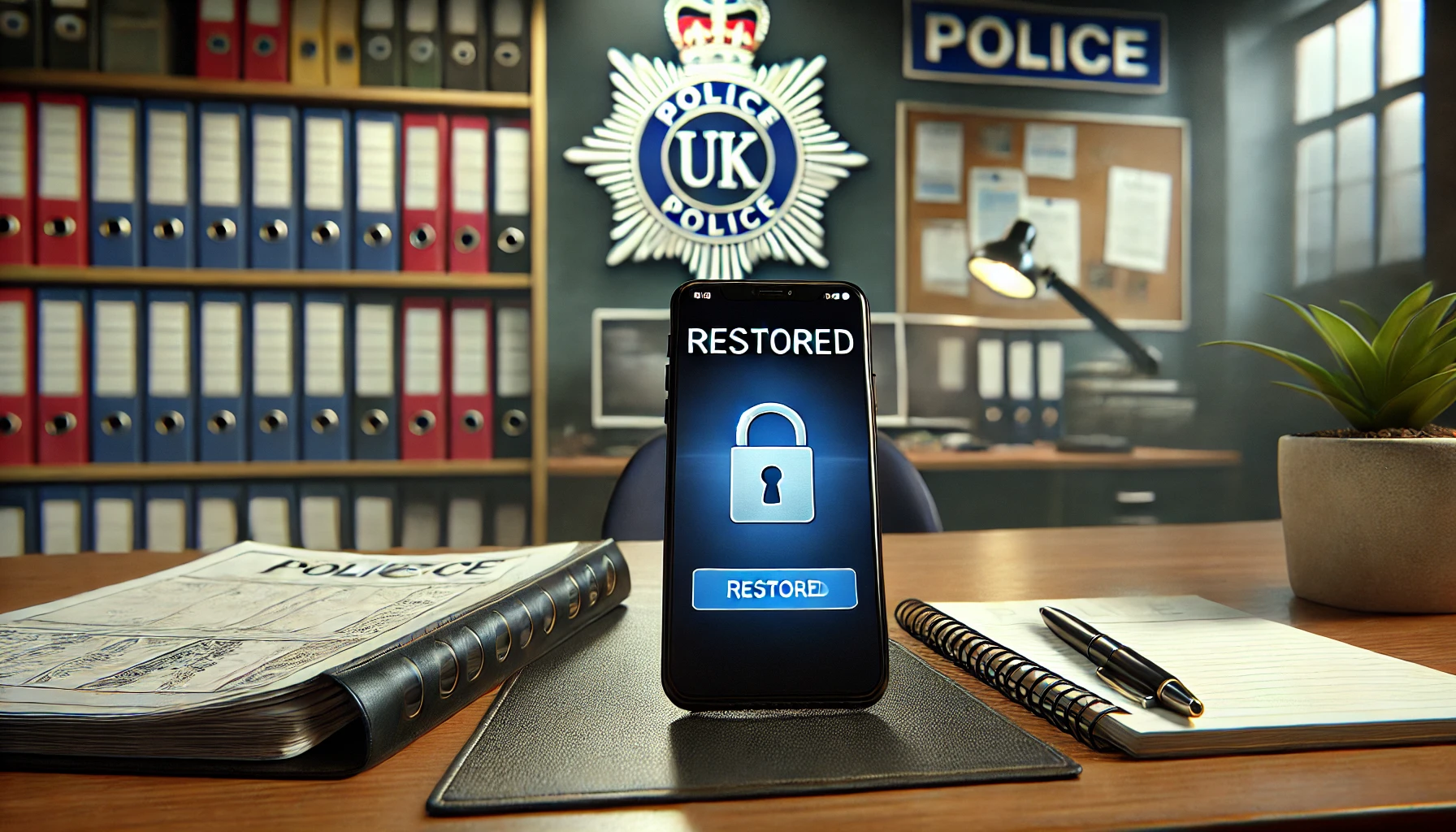Can Police Retrieve Deleted Text Messages? Understanding Your Digital Privacy

Can Police Retrieve Deleted Text Messages? Understanding Your Digital Privacy
“Can police retrieve deleted text messages?”
When Can the Police Seize Your Mobile Phone?

- Upon Arrest: If you’re arrested, the police can confiscate your phone as part of the investigation process.
- With a Warrant: Officers can seize your device if they have a warrant authorising the search and seizure of your property.
- Under Specific Legislation: In cases involving terrorism or child exploitation, the police may have broader powers to seize electronic devices without a warrant.
Can Deleted Text Messages Be Retrieved?
- Time Elapsed Since Deletion: Recently deleted messages are more likely to be recovered than those deleted long ago.
- Device Usage After Deletion: Continued use of the device can overwrite deleted data, making recovery more challenging.
- Encryption and Security Features: Modern smartphones often have encryption that can hinder data retrieval efforts.
Legal Framework Governing Data Retrieval

- Police and Criminal Evidence Act 1984 (PACE): Provides the police with powers to seize and search property following an arrest.
- Regulation of Investigatory Powers Act 2000 (RIPA): Governs the interception of communications and the acquisition of communications data.
- Investigatory Powers Act 2016 (IPA): Also known as the “Snooper’s Charter,” it expands the surveillance capabilities of law enforcement, including bulk data collection.
Your Rights and Protections
- Legal Representation: You’re entitled to consult with a solicitor to understand your rights and the scope of the investigation.
- Challenging Unlawful Seizure: If you believe your device was seized without proper authority, you can challenge the seizure in court.
- Data Privacy: Law enforcement must adhere to data protection laws, ensuring that any data retrieved is handled lawfully and only used for the intended investigation.
Conclusion: Can Police Retrieve Deleted Text Messages?

Notice: Informational Content Disclaimer
The content provided on this website, including articles, blog posts, and other informational materials, is intended for general informational purposes only. It is not intended as, and should not be considered, legal advice.
Visitors to this website should be aware that the information presented here is not a substitute for seeking legal advice from a qualified solicitor or legal professional. Each individual's legal situation is unique, and the information provided may not be applicable to specific circumstances.
If you require legal advice or have specific legal questions, we encourage you to contact us directly. Our experienced team of solicitors is here to assist you with your legal needs and provide tailored advice to address your concerns.
Please be advised that any communication through this website, including the use of contact forms or email, does not create a solicitor-client relationship. Confidential or time-sensitive information should not be sent through this website. To establish a solicitor-client relationship and discuss your legal matters in detail, please contact us for a consultation.
We strive to provide accurate and up-to-date information, but we make no representations or warranties regarding the accuracy, completeness, or suitability of the information contained on this website. We shall not be liable for any reliance placed on the information provided herein.
Thank you for visiting our website. We look forward to the opportunity to assist you with your legal needs.




